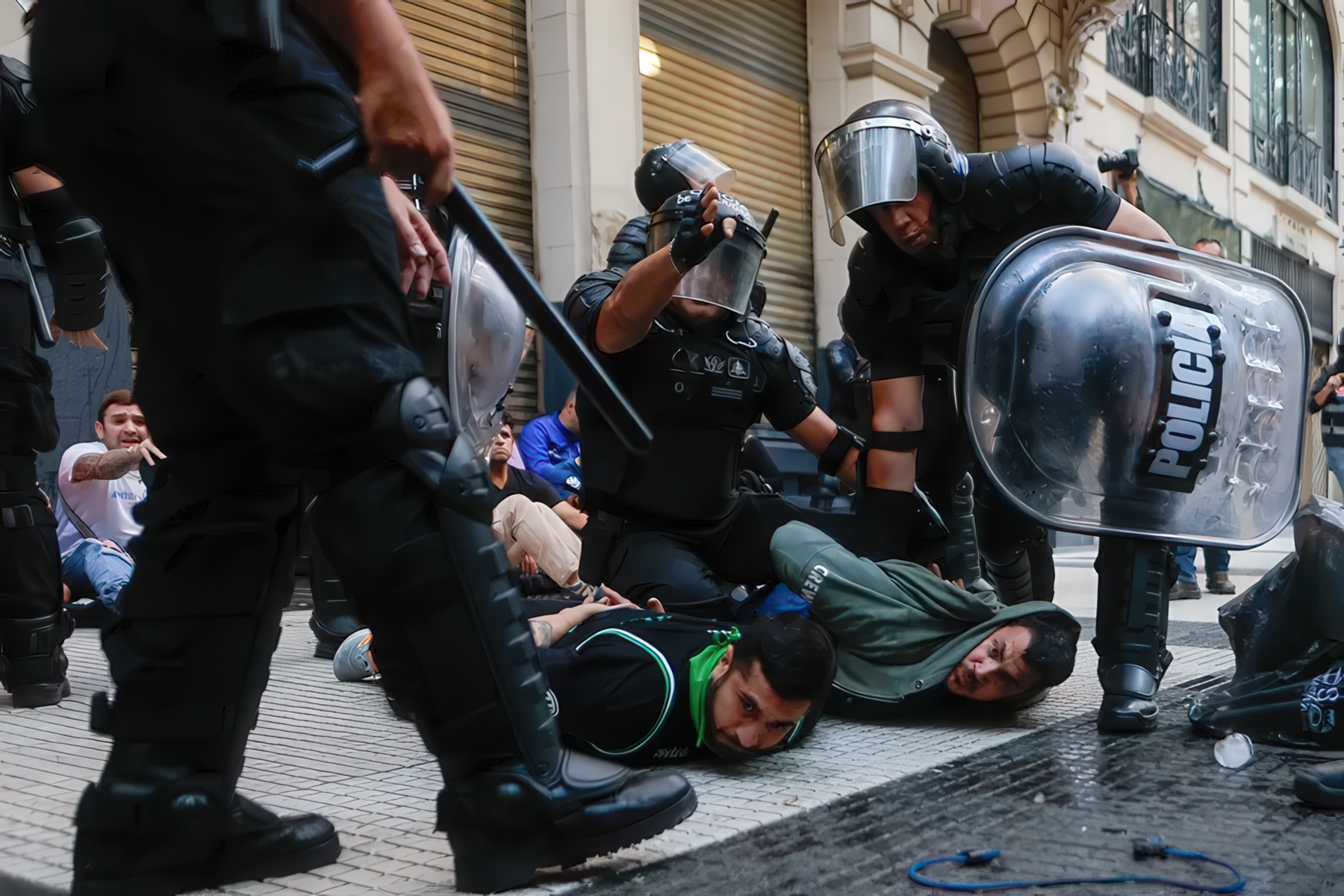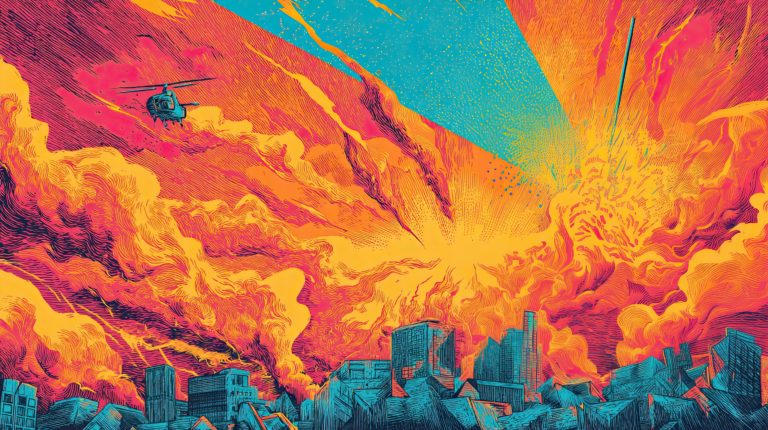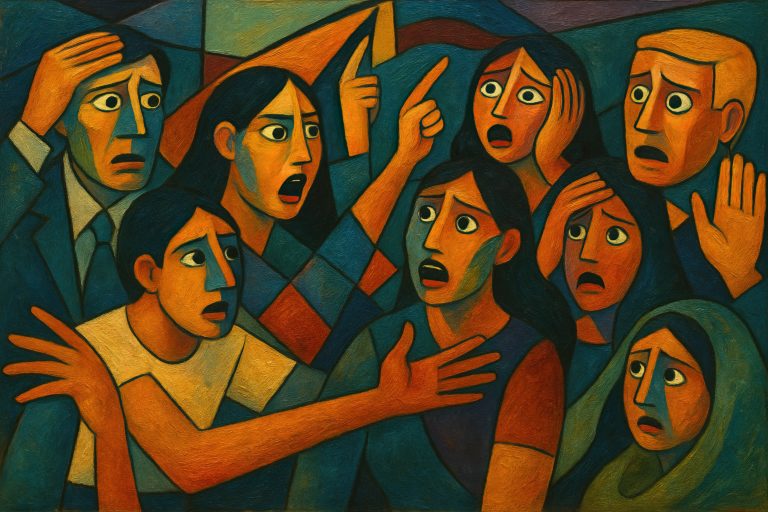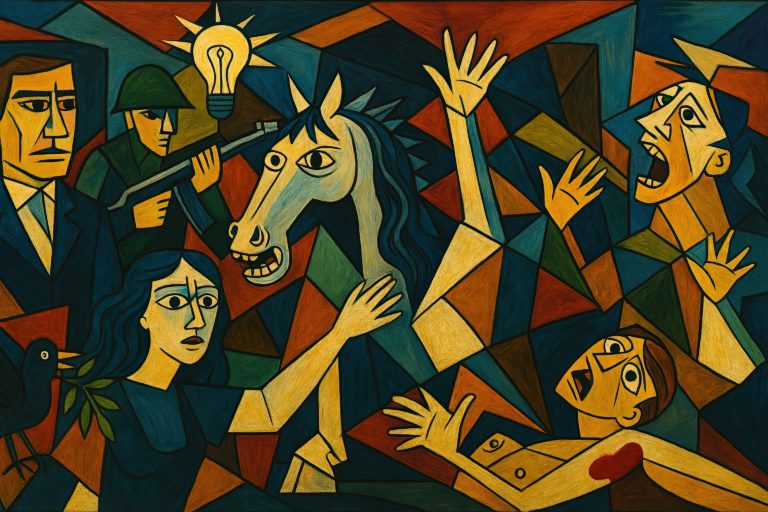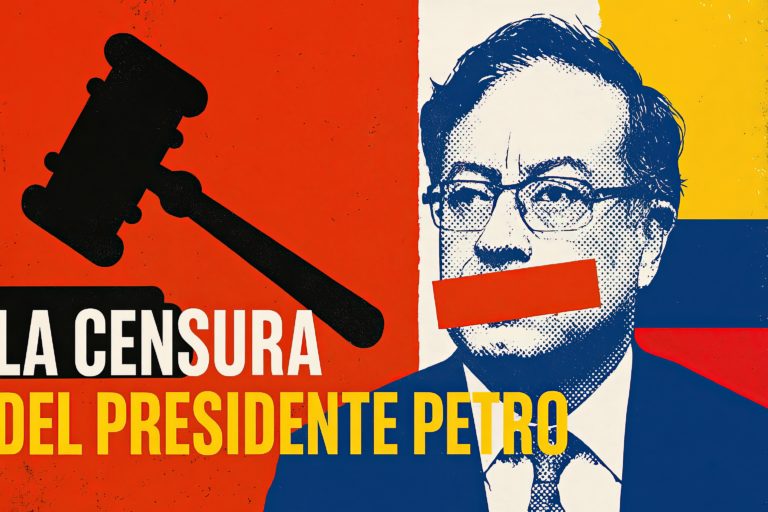Argentina: Repression, Austerity, and the IMF – How Milei is Sacrificing His People for a New Loan
Since taking office, Javier Milei has embarked on a radical economic policy, marked by unprecedented austerity and increasing repression against any opposition. While pensioners see their pensions plummet and the working class plunges further into poverty, the libertarian president is preparing a record-breaking loan from the IMF. Marketed as a necessity to stabilise the economy, this loan will only deepen the debt spiral and reinforce international financial institutions’ grip on the country. Meanwhile, security forces are ruthlessly cracking down on those who dare oppose this destructive agenda.
Austerity as a Doctrine: A Direct Attack on the Most Vulnerable
Argentina is in the midst of a deep economic crisis, and rather than proposing fair solutions, Milei is imposing a severe austerity programme that primarily affects pensioners and workers.
Pensions have been dramatically cut, pushing thousands of Argentinians into extreme precarity. “There is no money,” Milei repeatedly states in public appearances, justifying the abolition of numerous social programmes. Yet, state coffers are not empty for everyone. While pensioners must survive on disgracefully low incomes, the government spares no expense in funding its security apparatus and repression mechanisms.
The paradox is glaring: each tear gas canister used against protesters costs the equivalent of a minimum monthly pension. Rather than ensuring basic dignity for its citizens, the government prefers to invest heavily in weapons and riot control equipment supplied by the United States and Israel.
Brutal Repression Against Those Who Refuse to Stay Silent
On 12 March 2025, a pensioners’ protest in front of Congress in Buenos Aires was violently dispersed by security forces. Elderly men and women, demanding decent pensions, found themselves engulfed in clouds of tear gas and rubber bullets.
The scenes of chaos were widely documented: pensioners bleeding, others suffocating under the gas, and a photojournalist seriously injured by a direct headshot. In total, over 120 demonstrators were arrested and now face charges under an anti-mafia law, which equates peaceful protests with criminal activity.
By criminalising social protests, the government aims to discourage any form of resistance. The strategy is clear: instil a climate of fear to silence dissenting voices.
An IMF Loan to Lock Argentina into Further Dependency
While repression rages, Milei is secretly preparing another colossal loan from the IMF. This loan, presented as an urgent necessity, is in reality a trap that will entrench Argentina in long-term economic dependency.
Signed by decree, without congressional approval, this loan is officially intended to replenish currency reserves and repay creditors. But at what cost?
As always, the IMF imposes draconian conditions:
- Large-scale privatisation of key sectors.
- Increased indirect taxes that disproportionately affect the poorest.
- Further cuts to social assistance and pension funds.
History repeats itself. Just like in 2018, Argentina is sinking into an endless cycle of debt, from which only major investors and local elites will benefit.
Censorship and Media Manipulation as Political Weapons
To control public opinion, Milei relies on aggressive propaganda and systematic censorship. Public media outlets are being dismantled, their budgets slashed, and their journalists dismissed. Radio Nacional, TV Pública, and the Télam news agency have been reduced to shadows of their former selves.
At the same time, an army of “digital militias” systematically targets journalists and intellectuals who dare to criticise the government. Social media is flooded with disinformation campaigns aimed at minimising repression and discrediting protests.
The official narrative is simple: protests are destabilisation attempts orchestrated by “mafias” and “corrupt socialists”. A rhetoric reminiscent of the worst authoritarian regimes.
A People That Will Not Yield
Despite the violence and fear, resistance is growing. “Cacerolazos” ring out every night in Buenos Aires, trade unions are organising, and social movements are preparing a response.
Argentina has lived through dark times before. It knows that the only way out is through mobilisation and struggle. The real question is: how much longer will the Argentinian people tolerate being suffocated by debt and beaten down in the streets..?
“There is no money for pensioners, but there is money to buy weapons. Argentina burns under repression and debt, and history risks repeating itself.”
G.S.
